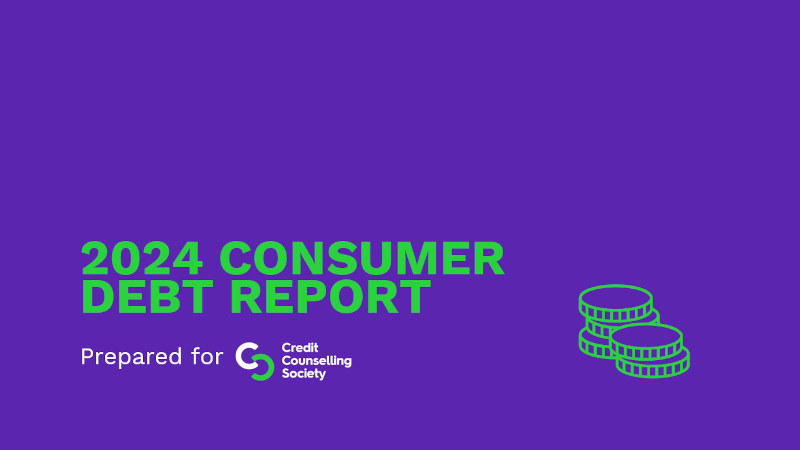2024 Survey Results
Consumer Debt Report 2024
Having helped many Canadians weather the financial storm last year which persisted through wearisome inflation combined with mounting interest rate increases, we’ve completed our annual survey of over 1,500 Canadians to try to gain a deeper understanding of what Canadians are going through, the challenging realities they are facing, and how they are managing their finances through all this turmoil. This survey provides important insights into the debt, perceptions, feelings, financial management skills, and future outlook for people across Canada.
Key Findings
- 67% (two-in-three) Canadians claim increases in cost of essentials as their highest current financial concern. Consequently, 85% (four-in-five) Canadians who report their financial situation worsened last year attribute spending on essentials to being the primary cause.
- How Canadians feel about the state of their current financial situation is declining. More Canadians feel worse about their financial situation now than at any time during or since the pandemic.
- 36% (more than one-in-three) Canadians feel anxious about their current financial situation. This is the third consecutive increase since 2020.
- 39% (four-in-ten) Canadians feel optimistic about their current financial situation heading into 2024. However, this is a decline from a high of 49% in 2020.
- 44% (two-in-five) Canadians experienced an increase in their debt in the past year with nearly half (48%) of Canadians with non-mortgage debt admitting they turned to credit cards for financial help in the past year.
State of Personal Finances
Our January 2024 survey results reveal that more Canadians feel worse about their financial situation now than at any time during or since the pandemic. Since 2020, the confidence of Canadians in their current financial situation has gradually declined (from 50% to 44%) while their anxiety has continually increased (from 27% in 2020 to 36% now in 2024).
Canadians struggle with the rising costs of essentials (housing, food, transportation, etc.) continues with more people every year reporting this as the greatest contributor to their worsened financial situation.
- 36% feel anxious about current financial situation. 36%
- 31% feel worse about their financial position today vs. the beginning of 2023. 31%
- 85% of Canadians with a worsened financial situation say spending more on essentials is the top contributor. 85%
- 27% feel pessimistic about their personal finances heading into 2024. 27%
Debt and Savings
With pandemic government supports and benefits having come to an end but the costs of living ever increasing, Canadians have been increasingly likely to have turned to non-government sources of financial support over the past two years – particularly personal savings and credit cards.
Almost half of Canadians have seen an increase in total debt over the last year. In an attempt to manage this increase in debt, Canadians are cutting back on discretionary spending, withdrawing money from savings, cutting back on saving and investing, borrowing more, and even selling personal items to free up extra funds.
- 64% are carrying non-mortgage debt. 64%
- 69% are not paying much more than the minimum payments on their non-mortgage debt. 69%
- 65% with non-mortgage debt have sought financial help in the past year. 65%
- 44% of Canadians have experienced an increase in debt in the past year. 44%
Perceptions of Financial Assistance
Canadians continue to have predominantly negative associations with reaching out for financial help themselves. Canadians with the highest debt loads feel the worst about reaching out for financial help.
Taking on a second job is either a significant possibility or already a reality for two-out-of-five Canadians. A third of Canadians are also likely to consider late bill payments or selling personal items a significant possibility.
- 42% of Canadians feel embarrassed about reaching out for financial help. 42%
- 23% think reaching out for financial help is responsible. 23%
- 42% who’ve experience an increase in debt either think they may have to get a second job or already have. 42%
- 81% of Canadians have cut back on expenses. 81%
Related Articles

Credit Counselling
Are you curious about what credit counselling is or how it works? Here’s what you need to know.

How We Help
Step by step, this is what happens when you contact us for help with your debts.

Client Reviews
Directly from our clients, read and hear about their experiences with CCS.







